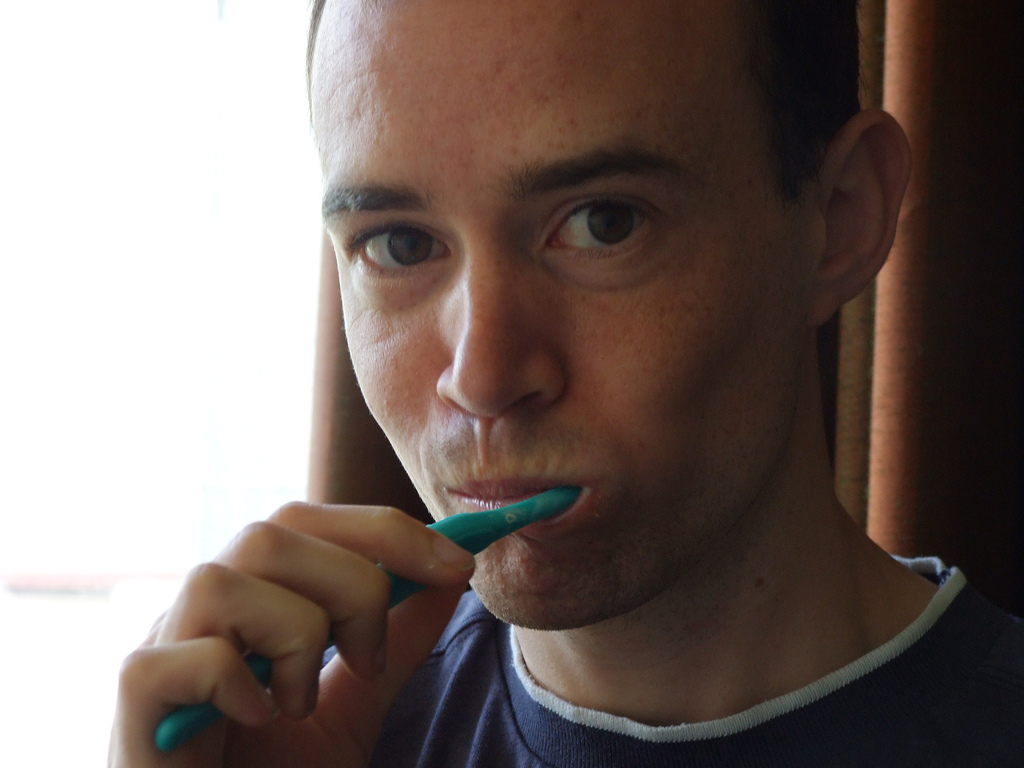You might know how to be happy, but can you do it?
Watch a video of any elite athlete or performer before a big game or show, and you will likely see one thing: their pre-performance habits, the things that they do every single time in exactly the same way.
This is because habits are everything. Not just for game-day, and not just for elite performers. For normal people like you and I, for raising our children, for being happy in our relationships, for being happy as individuals.
Our routines and habits allow us to access a part of our brain that runs on relatively little gas. The newer (in evolutionary terms) part of your brain—your smarty-pants pre-frontal cortex, the area that sets you apart from the family dog—works pretty well. But it requires effort and willpower to make it tick. The more you use it throughout a day, the less reliable it becomes. Low blood sugar? Your decision-making will falter, whether you realize it or not.
Good thing there is a back-up plan in the older part of your brain: your basal ganglia, a primitive knob of tissue deep in your noggin that acts as your own personal auto-pilot. It controls your breathing, and swallowing, and that weird way that you sometimes drive to work while sort-of unconscious.
Your basal gangla is, among other things, your habit center. And once it is programed, it requires no effort on your part to accomplish truly amazing feats. (Really. Charles Duhigg, in his inspiring book The Power of Habit, gives a detailed account of the way Olympic swimmer Michael Phelps won his world records by honing his habits.)
This means that when we are too tired to think—as we often are—we default to our habits. Which made me realize: Our habits are our most critical cornerstones for happiness.
I have long advocated finding habits and routines that actually work. It doesn’t have to be the most efficient or productive routine; it’s simply one that makes us feel good, or at least it doesn’t make us feel bad.
We need a dinnertime routine that creates feelings of gratitude rather than annoyance, for example, and a morning routine that doesn’t make us want to lay our heads down and cry before we even get to work. We also need bedtime routines for ourselves and our children that don’t leave us exhausted and irritable.
An important caveat: Cultivating habits and routines doesn’t mean that we go through life mindlessly. I mention this because mindfulness—when we consciously pay attention to what we’re thinking, feeling, and experiencing in the present moment, without judging our thoughts and feelings as “good” or “bad”—is a research-tested way to reduce our stress and, generally, be happier.
How can we be mindful about things we do habitually?
Well, consider how we breathe. On the one hand, our breathing is on auto-pilot—we aren’t thinking, “Okay, now I need to breathe in! Now breathe out! And in! And out!” At the same time, though, we can pay attention to our breath as a part of a meditation or another relaxation practice.
So when we make something a habit—say, washing the dishes right after dinner—we don’t need to become mindless about it—we can still pay attention to the way the water feels on our hands, for instance, or even appreciate the fact that we have dishes and food to eat off of in the first place. Habits can make something relatively routine and effortless, but not necessarily mindless. In fact, I find it much easier to be mindful about something once it is a habit—once I’m not trying to figure out what I’m going to do, or how I’m going to do it, or even IF I’m going to do something.
So our habits can routinely make us feel grateful, or joyful, and they can prompt us to pay attention and be mindful. But HOW?
I have spent years pondering this question, subjecting my clients and readers to my habit tracker and methods for getting into better routines.
Habits are a critical component of the happiness equation. It is one thing to know what to do to be happy (or to raise happy children, or to create a happy marriage) but it is quite another thing to actually be able to do those things. You know that you should exercise and meditate and eat kale, for example. But do you often do those things? Perhaps the missing piece is a habit.

